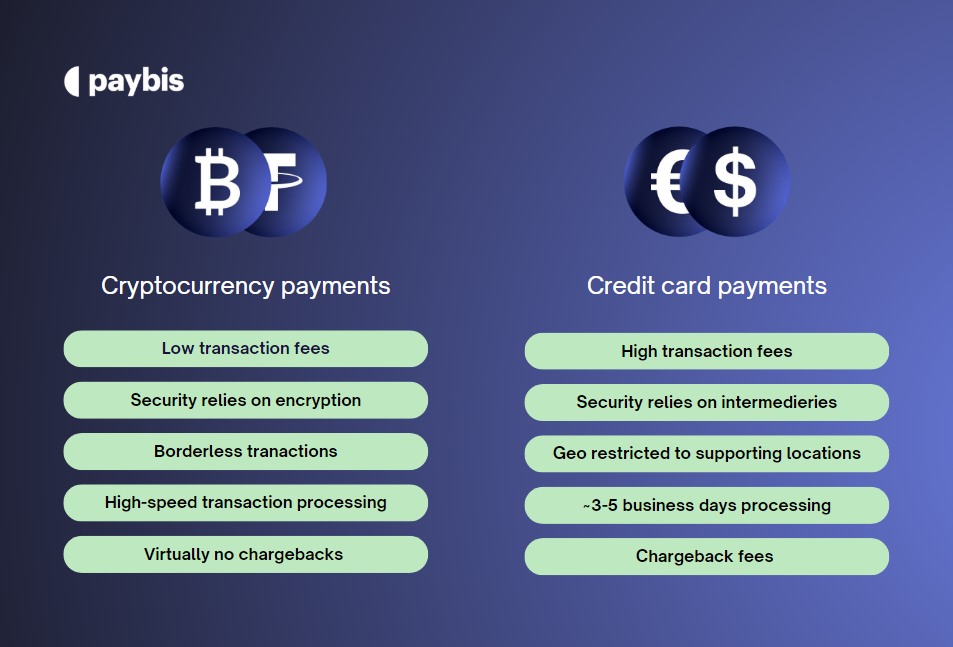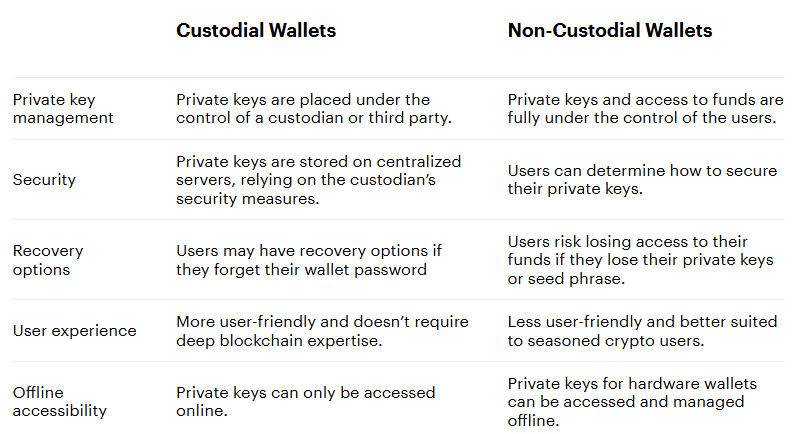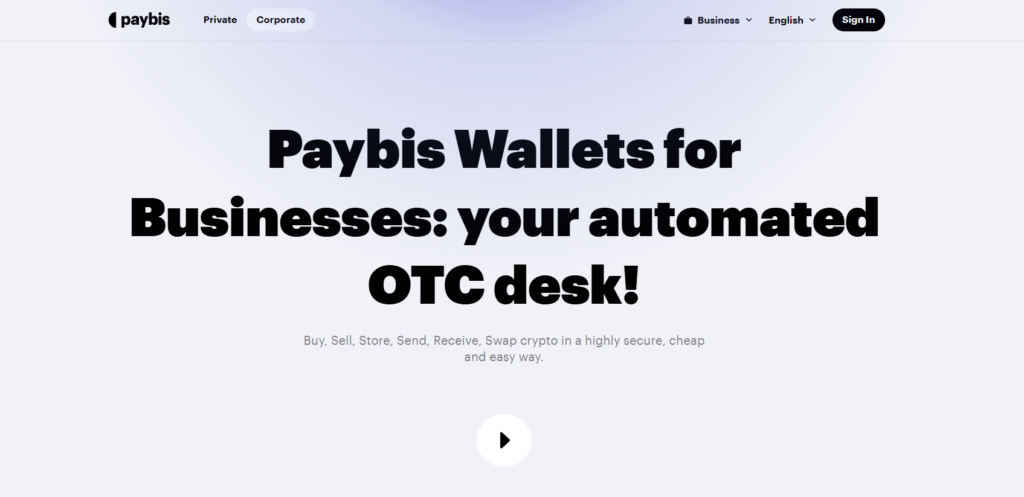How to Transition from Fiat to Crypto Operations: A Beginner’s Guide for Businesses
Cryptocurrencies have come a long way since Bitcoin was first introduced in the early 2000s. By 2025, they’ve transitioned from being a curious alternative, to full-fledged payment method companies around the world are looking to integrate.
Whether it’s adding an additional payment option, enhancing their employee payout system, or upgrading entire workflows, cryptocurrencies are becoming a vital part of digital payments on a global scale.
However, despite the famous examples of companies like Microsoft or Tesla investing in cryptocurrencies, transitioning from fiat to crypto remains a challenge. In this article, we’ll go over the key issues and considerations every company should take before crypto integration, what to expect, and how Paybis could be your crypto transition partner.
Table of contents
Why are Businesses Considering Crypto
Integrating cryptocurrencies in business workflows is already showing significant benefits. Reduced transaction costs and global reach are among the biggest factors driving companies to transition to crypto.
To back this up with some data, J.P. Morgan reports that around $120 billion is spent yearly on global payment transaction costs. Coupled with typically slow settlements between 3-5 business days, traditional cross-border payments are making businesses look for better alternatives.
One of these is the use of stablecoins (cryptocurrencies pegged to fiat currencies or even gold). PYMNTS states that of 250 companies that have participated in their survey, 58% use at least one cryptocurrency, and 84% of businesses operating in more than 10 countries use stablecoins.
Additionally, around 1.4 billion people around the world remain unbanked, leaving them to turn to cryptocurrencies for their financial needs. Having access to cryptocurrencies and the ability to trade allows companies to reach new potential audiences and expand their reach.
Additionally, crypto transfers tend to have lower transaction costs and faster transfer times than traditional banking systems. Traditional payment systems rely on intermediaries like banks and credit card companies, which increase transaction costs. Cryptocurrencies lower these costs by enabling direct, peer-to-peer transactions.
Other benefits also include:
- Improved security and transparency for reduced risks of fraud and providing a clear audit trail.
- New investment opportunities and potentially high ROI for companies who want to diversify their investments for long-term financial goals.
- Decentralized Finance (DeFi) allows businesses to tap into decentralized lending, borrowing, and earning interest on crypto holdings.
- Brand differentiation as companies who adopt crypto solutions early on gain a competitive edge.

Roadmap for Transitioning to Crypto Operations
Ensuring a successful transition from working solely with fiat currencies to including innovative blockchain technologies can be challenging, but integrating cryptocurrencies can elevate your business to a completely new level when executed correctly. There are two main elements you should define before you even begin to work on a roadmap.
1. Define Your Business Goals for Crypto Adoption
Crypto adoption is certainly becoming a hot topic, but it requires careful consideration. Most companies who choose to integrate cryptocurrencies are looking for new ways to expand globally, leveraging crypto’s ability to facilitate international transactions without the high fees of traditional payment systems.
Other companies are drawn to reducing transaction fees and allowing for more cost-efficient payments for customers and the business itself. Finally, there’s asset diversification, with companies like Mara, Riot, Tesla, and many others having great success.
Understanding your company goals, be it financial flexibility, enhanced customer acquisition, retention, and engagement will help define the best crypto adoption strategy for your company.
To help define your needs, it’s recommended to consult with crypto and blockchain specialists and develop several business models, run surveys for your customers, or engage with marketing agencies to perform market analysis to support and further define your future goals with crypto operations.
2. Review Infrastructure Requirements
The second most important step you should look into is the infrastructure requirements needed for your crypto adoption goals.
Step 1: Crypto wallets
The first step involves choosing between custodial and non-custodial wallet service providers, or even cold storage options like external hard drives.

Step 2: Software
Next, you should look into crypto payment gateway providers like BitPay or CoinGate and blockchain platforms to start setting up payment infrastructure.
Step 3: Networks
This is the most important step as you’ll have to ensure that your processing networks are secure, fast, and compliant, especially when switching between fiat currencies and cryptocurrencies.
Among these key factors, you should also work to ensure that the infrastructure you choose supports crypto payment, crypto accounting, and full compliance monitoring. Choosing the right providers, partners, and infrastructure can arguably be the hardest part of the entire process, but once accomplished, integrating cryptos becomes easier.
3. Compliance & Regulatory Requirements
Integrating cryptocurrencies and blockchain technologies means navigating the regulatory landscape that’s still very much in development. KYC (Know Your Customer) and AML (Anti-Money Laundering) procedures have become essential for ensuring compliance and preventing illicit activities.
In 2023, Markets in Crypto-Assets Regulation (MiCA) was introduced by the European Union to help establish a regulatory framework for cryptocurrency and digital asset use.
Additionally, when choosing a crypto software provider it’s important to bring in specialists to discuss tax implications, which can vary depending on your operating markets.
4. Wallet Setup & Management
Choosing the right wallet is a crucial step. Currently, there are two types of crypto wallets you can choose from: custodial wallets (managed by a third party with you having total control over your private keys) and non-custodial wallets (controlled directly by the business looking after your private keys).
But that’s just one side of the coin. You should also consider the available security measures of your provider like multi-signature wallets for added security and robust protocols for wallet setup, usage, and private key storage.
5. Selecting Payment Processors and Platforms
There are quite a few crypto service providers, but when choosing the best one for you it’s important to consider the available payment methods, fiat currencies, and cryptocurrencies. Additionally, fee structures, pricing, regulatory compliance, and reliable technical and customer support are also crucial in ensuring a smooth transition.
6. Develop Employee Training Programs
There’s an overall lack of knowledge of cryptocurrencies which also leads to a lack of confidence and errors. To help prepare for a transition to crypto, it’s advised to initiate learning programs to help educate your teams on cryptocurrency basics, including how to process transactions, recognize security threats, and use wallets responsibly.
7. Security Measures
While most security measures will depend on your service provider, it’s crucial to implement the best practices like two-factor authentication (2FA), encryption, and regular security audits. Understanding the most common threats will help in keeping your operations secure, and choosing the right service provider.
8. Backup & Recovery Plan
Finally, one of the most essential considerations when preparing for crypto adoption is your backup and recovery plan. It’s crucial to establish a robust backup strategy for all your wallet keys and transaction logs, especially if you’ll be transferring cryptocurrencies regularly.
Consult with your provider and if needed, an outside specialist to set up secure, offline storage for backups and regularly test recovery processes to make sure your business is prepared for any data loss or system failures.

Transitioning To OTC Crypto Transactions with Paybis
Integrating cryptos is fast becoming a popular solution for many businesses to overcome challenges like high transaction fees, slow processing times, and more. However, working with different partners to create a single payment system with cryptos can be challenging.
OTC Desk & Business Wallets is a secure, user-friendly solution for businesses to manage cryptocurrencies. With Paybis’ solution, your business will be able to buy, sell, store, receive, and manage funds easily and seamlessly.
Paybis has been operating in the crypto market for over 10 years, processing more than $5 billion. Throughout this time, we’ve grown and developed into a provider capable of enabling businesses to integrate crypto solutions into their new and existing operations.
With our in-house team of experts, we’ve built the OTC Desk & Business Wallets to be a product that makes it easy for any business to transition to cryptocurrencies hassle-free with a custodial wallet that ensures the safety of private keys.
Our solution comes with seamless fiat-to-crypto on/off-ramping and a simplified dashboard, the product is designed to be as simple to use as possible. If you’d like to choose Paybis as your OTC provider, this is how the process would look like:
- Completing the onboarding process: this can be a long and arduous process, but with Paybis, on average an onboarding process is completed within 24 hours.
- Defining transaction needs: we sit down and discuss typical transaction sizes, frequency, and currency needs to tailor the solution for your business needs.
- Understanding compliance and KYC requirements: to ensure total transparency and security we go over in detail what to expect for KYC/AML documentation and how it ensures secure transactions.
- Verifying security measures: as part of ensuring safety, we also provide instructions with best practices for using security features like two-factor authentication, encryption, and multi-signature support.
- Reviewing Paybis’ fee structure and tiered pricing: Paybis offers a tier-based pricing model, designed to adapt to your changing business needs.
- Launching the OTC Desk & Business Wallets: our solution is designed to be easy to use as possible, all you have to do is sign up and our technical team takes care of the rest.
- Initiating tests with small transactions: once the initial processes have been set up, we test them with small-scale transactions to ensure a smooth operation, assessing any issues.
- Establishing communication with a dedicated account manager: we assign a dedicated account manager for every client available 24/7, choosing a preferred communication method.
- Setting up account notifications and alerts: during the final stages of integration, depending on your business needs, we also help configure alerts for transaction confirmations, status updates, and account activity.
In short, Paybis OTC Desk & Business Wallets is a hands-off product that takes care of it all for you. Instead of managing the different aspects of integrating cryptocurrencies, all you have to do is sign up, while our team does the heavy lifting for you.
Wrapping Up
Adopting cryptocurrencies has the potential to future-proof your business and ensure its position in an increasingly digitalized economy. The Paybis Business Wallets offer a seamless, secure, and fully compliant solution for integrating cryptos into your operations.
Partnering with Paybis means gaining a trusted and globally recognized partner to navigate the nuances of crypto adoption while maximizing its benefits. Discover how Paybis can transform your business – schedule a consultation with one of our team members and let’s discuss the benefits!
FAQ
Why should I consider transitioning to cryptocurrencies for my business?
Adopting cryptocurrencies can help businesses cut back significantly on transaction costs and enable faster cross-border payment. Moreover, easier and faster payments can also lead to reaching a wider global base in terms of customers and potential talent.
How can my business maintain compliance with crypto regulations during the transition?
To ensure compliance with crypto regulations, a business should consult legal and financial experts familiar with cryptocurrency laws in relevant jurisdictions, particularly taking into account the markets in which a business functions or plans to expand. Another crucial element is to implement robust Know Your Customer (KYC) and Anti-Money Laundering (AML) practices.
What security measures should my business consider for cryptocurrency use?
The most important step is to choose reliable partners for all your software and hardware choices. Specifically, to make sure your operations adhere to the highest security standards that both protect you and your customers, consult with industry specialists to sign contracts with trusted service providers for your crypto operations.
Disclaimer: Don’t invest unless you’re prepared to lose all the money you invest. This is a high‑risk investment and you should not expect to be protected if something goes wrong. Take 2 mins to learn more at: https://go.payb.is/FCA-Info



